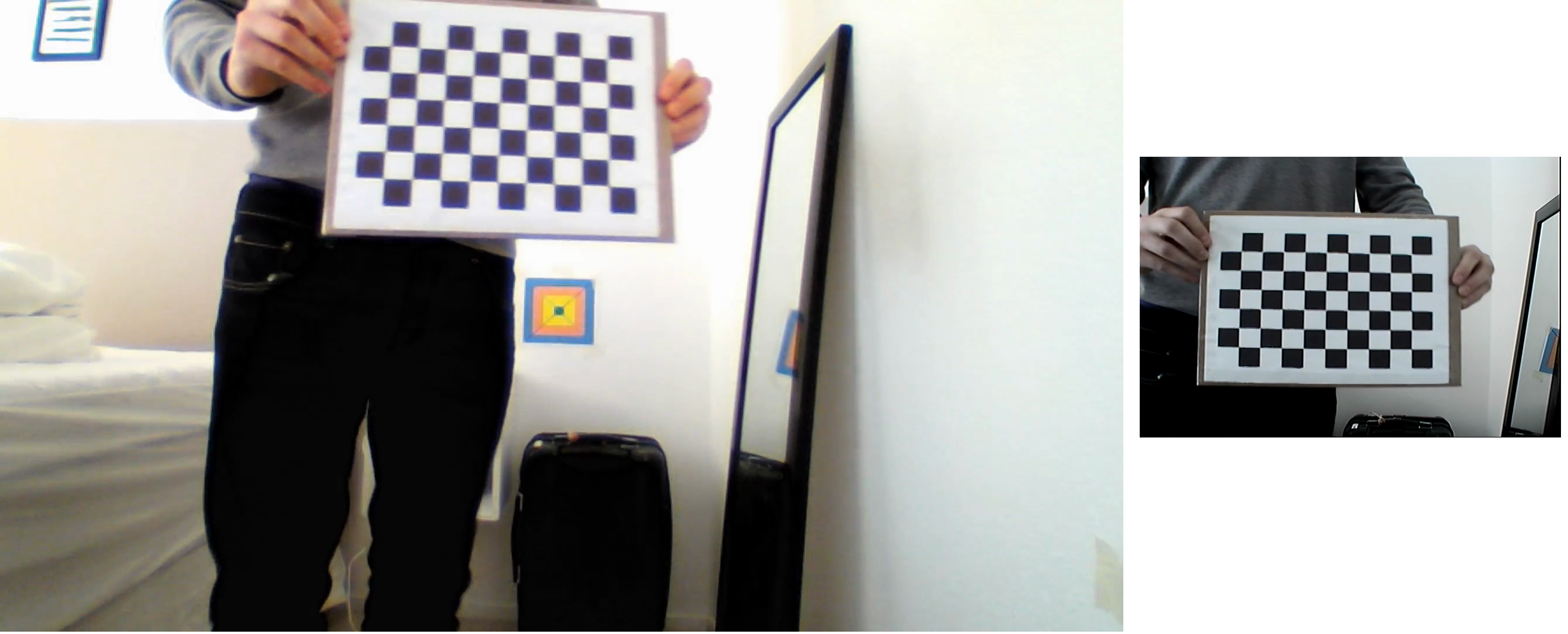In this project we modified existing Matlab toolbox's code to get the stereo calibration run under different resolution cameras. Especially if you want to work with multiple different camera, you should calibrate them. For instance infrared camera and RBG camera, or as how our demo was on you can calibrate up down mounthed high resolution standart USB camera and relatively low resolution Pan-Tilt-Zoom (PTZ) camera.
Unfortunately neither Matlab's nor OpenCV's does not give us an opportunity to calibrate such a both two very different kind of camera. The following figure shows one of our provided 7 pair of calibration board images from USB and PZT camera. The USB camera has 1920x1080 resolution but PZT has just 720x480.
We slightly modified estimateCameraParameters.m and rectifyStereoImages.m functions of Matlab Toolboxes. You can find them on that repository. Also we provided demo script. You can run it with following command.
> Demo
then you can take following outputs as a results. You can see extrinsic parameter, rectified image pair and position of cameras relative to 1st checkerboard points, their ground truth and also estimated positions from triangulation of both camera.
Here is the K, global intrinsic calibration parameters of USB camera and also R, T matrixes for 1st calibration board.
K1 =
1157.0 0 931.2
0 1147.4 376.0
0 0 1
R1 =
-0.9972 0.0177 -0.0732
-0.0328 -0.9770 0.2108
-0.0678 0.2126 0.9748
T1 =
58.6597
-30.2059
613.0425
And also here is PZT camera parameters
K2 =
876.9470 0 326.4428
0 776.9896 196.5821
0 0 1.0000
R2 =
-0.9997 0.0114 -0.0231
-0.0137 -0.9944 0.1043
-0.0218 0.1046 0.9943
T2 =
93.4428
101.1229
584.6069
Beside that you can get the one image into another image plane (superimpose). But without knowing depth information, theoretically it is not possible to superimpose each pixel in the right place. So let's assume all objects are at Z=0 world plane, where the top-left corner of the first calibration checkerboard is our reference point. Here is the superimposed result of PZT image onto the USB camera image plane.


